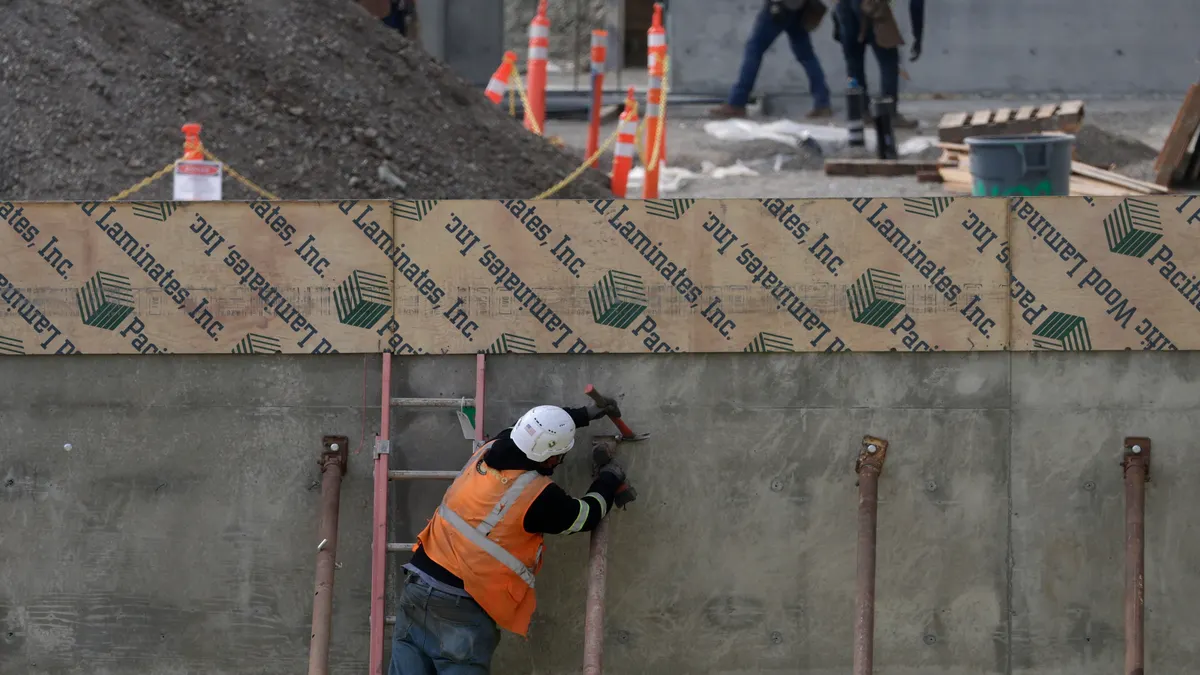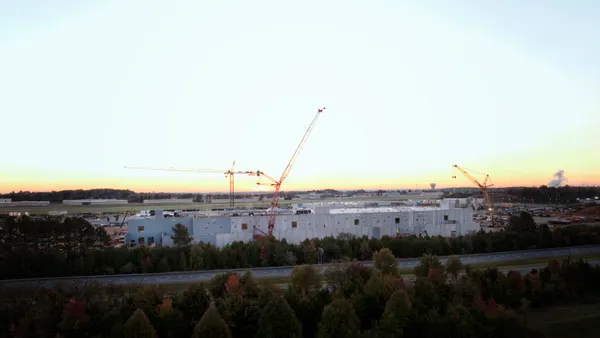Dive Brief:
- A robotics company that focused on powered prosthetic limbs and military-grade applications has turned its attention to the construction industry, according to Engineering News-Record, with three products aimed at relieving the burden of performing unstructured and non-repetitive tasks common on the jobsite.
- Sarcos Robotics' offerings aim to supplement human labor rather than replace it. One is a snakelike inspection robot that can, armed with a front-mounted camera, climb stairs and metal surfaces. The second is a powered exoskeleton that the firm said boosts the strength of construction workers, allowing them to do their jobs more productively and with fewer injuries. The third is a set of robotic arms, each with a 500-pound lifting capacity, that is able to perform tasks like welding.
- The exoskeleton is of particular interest to companies like Caterpillar, which said it plans to use it to help workers lift and handle heavy items as part of its manufacturing operations. Sarcos officials said they view the exosuit, which should be commercially available in late 2019, as a labor source that will "dramatically increase human efficiency and dramatically reduce the chance of injury.”
Dive Insight:
The global market for full-body exoskeletons is expected to be valued at more than $507.3 million by 2025, according to Coherent News, and the North American market is expected to grow at a compound annual growth rate of 20.59% during the same period. While Coherent said the lion's share of growth will be in the healthcare and military industries, construction is expected to make a showing as well.
And according to the Exoskeleton Report, industrial use is the fastest growing area of research for different categories of exoskeletons for specific uses, like ones that hold tools, convert into chair-like supports that lock in place, promote posture and grasp items with powered gloves.
Allowing construction workers to do their jobs more safely is not only the right thing to do, but it can provide a payoff for companies as well. If safety is a priority for an employer, it can make it easier to recruit new workers. Also, any reduction in injuries saves money on workers' compensation insurance premiums, and workers' comp carriers typically give companies a discount on premiums if they exhibit sound safety practices.













